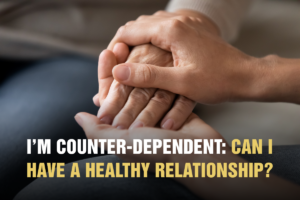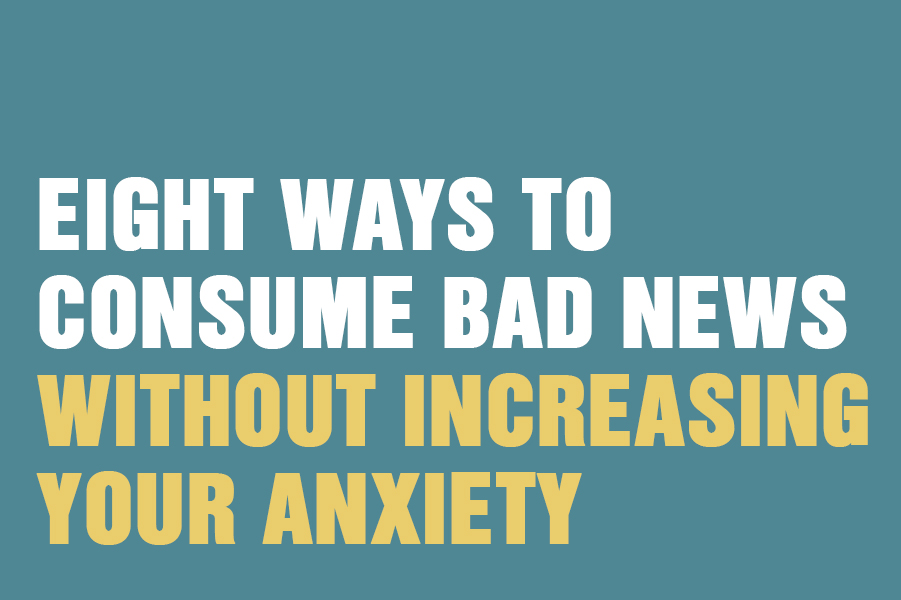Most people have something they’re slightly fearful of, be it spiders, small spaces, or even the ocean. For the most part, these fears don’t tend to cause too much – if any – disruption to a person’s day-to-day life, and they may even be considered ‘reasonable’ or rational.
But if you have a fear that is so intense it prevents you from doing everyday things, (even if the threat itself is minimal), this is usually considered an irrational fear, or a phobia. Irrational fears can be debilitating, and whilst you likely recognise that the fear itself is not justified, you may struggle to manage your feelings and overcome what you’re afraid of.
Having an irrational fear or phobia can be exhausting, and take an immense toll on your mental wellbeing and quality of life. So, if you’re struggling with an irrational fear and want to learn more about how you can overcome it, keep reading as we explain more about phobias and how they can be managed.
Understanding Irrational Fears
There are two main types of fear: rational and irrational. Rational fears relate to things that could realistically happen if you find yourself in a certain scenario. This could include a fear of heights because of the risk of injury, or a fear of snakes because they might be venomous and could cause harm if they bite you.
These are normal fears that are rational in the moment and are hardwired in us for basic survival. They can be associated with the fight or flight instinct that we all have, and whilst they may exist in almost everyone, most people are unbothered by them unless they’re directly confronted by the stimulus. A person probably wouldn’t change their habits or actions to avoid these scenarios – for example, they may not avoid getting on an aeroplane due to a fear of heights.
On the other hand, irrational fears are not always logical and can greatly disrupt a person’s day to day life. They’re extreme and often not justified because the threat is minimal or non-existent, and yet, the person suffering from the phobia may go to extreme lengths to avoid the thing they’re afraid of.
Irrational fears often develop as a result of a traumatic event in childhood. For example, if you were bitten by a dog when you were a child, it’s reasonable that you might be wary or even afraid of dogs throughout your life; but if you actively avoid going outside in case you see a dog on a walk, this could be considered irrational, given that most dogs don’t pose a direct threat to your safety or wellbeing.
Another example of an irrational fear is that of heights. It’s normal to be fearful of heights, but if that fear is so intense that it prevents you from taking a job in an office on the fourth floor, this would be considered a phobia.
Some irrational fears are more obscure and can include things such as being afraid of balloons, tiny holes, sleeping, or cotton wool. No matter what the fear is, the characteristic that makes it irrational is that it affects a person’s life beyond what is justifiable.
Fear and Anxiety Disorders
Phobias and irrational fears are a type of anxiety disorder, and this is why if you have a specific phobia, you may experience strong feelings of anxiousness, along with some or all of the associated symptoms.
It’s important not to confuse phobias with other types of anxiety disorders. For example, if you find that you excessively worry about being in social settings or being judged in everyday situations, such as going to the shop, you may have a social anxiety disorder rather than an irrational fear.
Another example of an anxiety disorder that may be confused with an irrational fear is separation anxiety. Whilst it’s expected that small children will panic when their parents disappear from sight (this is a conventional fear related to age), it would be considered less conventional for an adult to do the same and may indicate higher levels of anxiety that could become disruptive to a person’s everyday life. This isn’t a phobia, but rather separation anxiety.
Whilst there are different types of fear and anxiety disorders, many share the same symptoms, such as being short of breath, shaking or fidgeting, having heart palpitations or experiencing hot or cold flashes.
The causes of fear and anxiety disorders vary, with some being genetic (those with a family history of anxiety disorders may have a predisposition to developing one), some the result of problems in the brain’s circuits that are responsible for fear (an abnormality within gamma-aminobutyric acid), and others due to environmental factors and challenging life experiences (traumatic experiences and events such as abuse).
A GP will be able to diagnose an anxiety or fear disorder, but it’s important to try and be open about what you’re feeling and whether it’s affecting your day-to-day life. This will help with finding the right treatment.
Key Irrational Fear Symptoms
There are a few common symptoms that you might experience if you have an irrational fear or phobia, some of which may be physical, and others that may be more emotional. People with phobias and fears tend to find that their symptoms increase the more they think about the fear, or if they are confronted with the source of their fear.
Some of the most common physical symptoms of an irrational fear or phobia include:
- Sweating (often to excess)
- Shaking
- Chest pains or the feeling of a tight chest
- Increased heart rate
- Breathing issues or difficulties
- Hot and/or cold flashes
- Feelings of dizziness or light-headedness
In addition to physical symptoms, you may also experience some emotional symptoms, including:
- Feeling an immediate or urgent sense of needing to escape a situation
- Feeling overwhelmed by anxiety
- Feeling like you’ve lost control
The symptoms a person experiences when they have an irrational fear may vary, and the fear itself can also have an impact. For example, it’s widely noted that those who suffer from blood, injection, and injury-related phobias may physically faint when they see blood or a needle, whereas someone with an irrational fear of the ocean likely won’t faint at the sight of water.
Irrational Fear and Phobia Treatment
If you have an irrational fear, there are several treatment options available to you. Treatment is specific to each person, but a good place to start is with exposure therapy. This involves directly confronting your phobia in a safe and controlled environment.
For example, if you have an irrational fear of spiders, exposure therapy will encourage you to come face to face with a spider, although there may be a number of steps that are taken beforehand through cognitive behavioural therapy.
This type of therapy seeks to change the way you think, so you might start by researching spiders and learning more about them. You might then be asked to look at pictures of them, before eventually building up to holding one.
Exposure therapy is considered one of the best ways to deal with phobias by not allowing you to avoid the source of your fear (often, avoidance can make the fear worse). Through this, the way you view the source of your fear will change, and the end goal is that you won’t exaggerate the fear or have your daily life disrupted by it.
Getting Help for an Irrational Fear
Having an irrational fear can be tough, but you’re not alone and there are treatment options out there to help you overcome your phobia and regain control. If you’re struggling with an irrational fear, get in touch with The Awareness Centre today. Our team is fully trained and qualified to help you understand more about what an irrational fear is, why you might have one, and what you can do to ease it.








